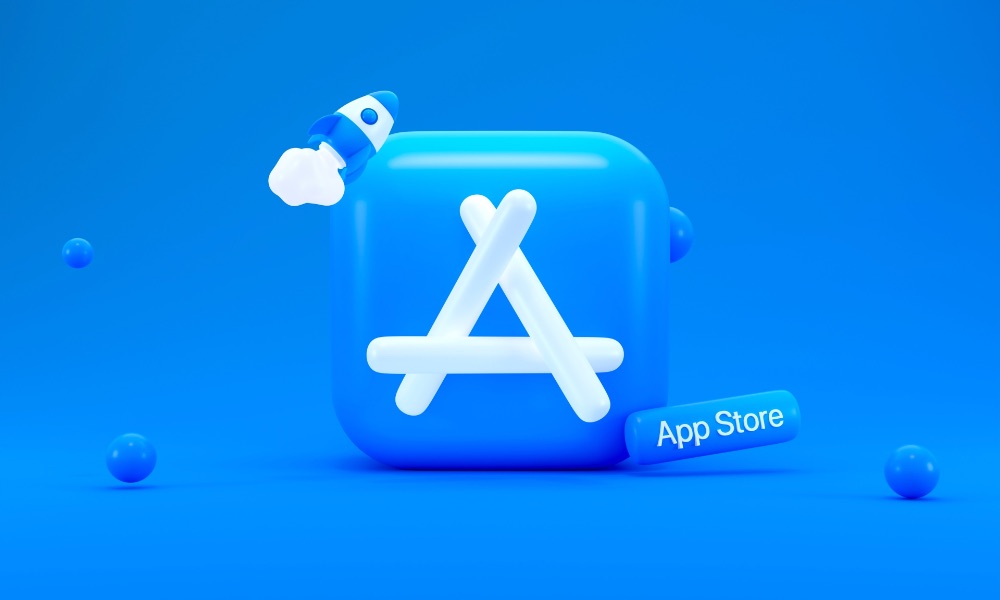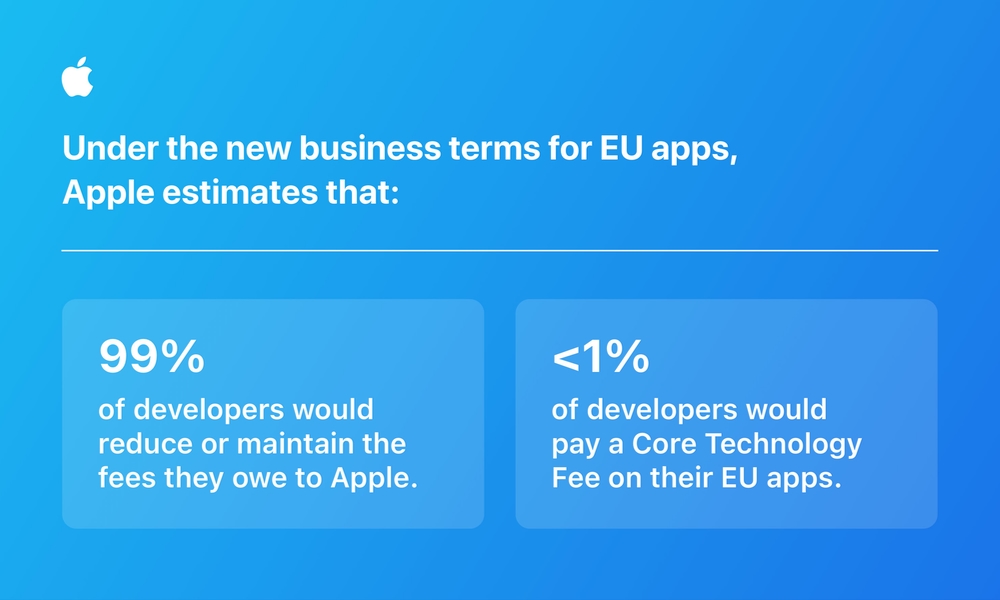Apple Announces Big App Store Changes in Europe
 Credit: Mariia Shalabaieva
Credit: Mariia Shalabaieva
Toggle Dark Mode
With the European Union’s Digital Markets Act about to come into force in March, Apple has officially announced its plans to open the doors to sideloading — allowing apps to be installed from sources other than the App Store — and while it’s not opening things up completely, Apple’s terms are a bit less draconian than many feared.
Earlier this week, sources speaking with The Wall Street Journal outlined a scenario where Apple would comply with the strictest letter of the law possible, allowing sideloading without giving up any of the commissions it earns or control it typically exercises through the App Store.
Such a move wouldn’t have been that surprising, considering Apple took a similar stance in the US after the Supreme Court declined to hear its appeal on the 2021 ruling in the Epic Games case that will require it to allow developers to offer third-party purchasing systems from outside of the App Store. With that case now closed, Apple has created a way for developers to provide external purchase links that will be subject to a 27% commission for all purchases made through those links.
However, Apple’s new terms for developers in the European Union (EU) have turned out to be quite different and may represent the most significant change to the App Store since it first launched in 2008.
The New European App Landscape
Apple spelled out those new changes today, which include allowing developers to use their alternative payment service providers within their apps or process payments via link-out to an external website. Developers will also receive new options to distribute apps “from alternative app marketplaces” and have the ability to create apps to power those marketplaces.
The new business terms, which will be optional for developers who choose to remain on the App Store and use Apple’s payment processing, will allow developers to pay reduced commissions for iOS apps that are distributed through the App Store in exchange for a “core technology fee” that’s charged for each app that’s installed from the App Store or an alternative app marketplace.
The changes we’re announcing today comply with the Digital Markets Act’s requirements in the European Union, while helping to protect EU users from the unavoidable increased privacy and security threats this regulation brings. Our priority remains creating the best, most secure possible experience for our users in the EU and around the world. Developers can now learn about the new tools and terms available for alternative app distribution and alternative payment processing, new capabilities for alternative browser engines and contactless payments, and more. Importantly, developers can choose to remain on the same business terms in place today if they prefer.
Phil Schiller, Apple Fellow
However, the new terms will be mandatory for developers who wish to take advantage of the new “freedoms” Apple is opening up, including alternative app marketplaces and alternative payment processors. Those who choose to remain on the App Store unchanged can stay with the old terms, paying a 15–30% commission — or decide to switch to the new ones, which could save some of them a bit of money.
Specifically, smaller developers under the new terms will pay a reduced 10% commission on digital goods and services, with an additional 3% tacked on for those who choose to use the App Store’s payment processing. This 10% will also apply to subscriptions renewed after the first year, so it effectively replaces the 15% charged under Apple’s standard App Store terms. However, that 15% also included payment processing, so it’s ultimately only a 2% reduction.
Larger developers will pay a 17% commission instead, plus the 3% for payment processing. That represents a 10% reduction over the standard 30% commission. However, Apple plans to make up that difference through a new “Core Technology Fee” for the most popular apps.
The Core Technology Fee will see developers with over a million installs per year paying €0.50 per install over that threshold — although only for the first install each year. However, Apple expects this Core Technology Fee to only apply to “less than 1% of developers.”
Alternative App Marketplaces
To be clear, Apple isn’t going quite so far as to allow full sideloading. Under the new rules, users won’t be able to download apps from any old website and install them on their iPhones — even in the EU.
Instead, Apple plans to allow “Alternative App Marketplaces,” whereby developers can build their own “app stores” that can be installed on the iPhone where individual apps can be sold. These marketplace apps won’t be distributed through the App Store but rather directly from the developer’s website. However, they still need to be approved by Apple under a separate set of terms and conditions.
Alternative app marketplaces can install and support software on iOS devices, access data across a catalog of apps, manage users’ purchases and subscriptions, and more. They are responsible for meeting Notarization requirements, like all iOS apps. Marketplace apps may only be installed from the marketplace developer’s website.
Apple
For one thing, developers who build alternative app marketplaces will have to pay the Core Technology Fee for every first annual install of their marketplace app, even before they reach the one million install threshold.
Further, as we heard earlier this week, Apple still plans to review every app distributed through an alternative app marketplace. However, this won’t be the same as a full App Store Review. Instead, Apple will do a basic review it calls “Notarization for iOS apps” to ensure that they’re safe and deliver on what they claim.
Notarization for iOS apps is a baseline review that applies to all apps, regardless of their distribution channel, focused on platform policies for security and privacy and to maintain device integrity. Through a combination of automated checks and human review, Notarization will help ensure apps are free of known malware, viruses, or other security threats, function as promised, and don’t expose users to egregious fraud.
Apple
This includes reviewing the app descriptions and screenshots to ensure that they accurately reflect the app and any in-app costs to the users, as well as ensuring that they’re functional, safe, and don’t have any security or privacy issues.
Once reviewed, Apple will still need to encrypt and sign the iOS app distribution package before it can be published on an alternative app marketplace — and it will still have a “kill switch” to revoke the signature should it later discover that an iOS app “contains known malware after it’s been installed.”
However, Apple is also making it clear that there’s only so much it can do with apps distributed through alternative app marketplaces since they won’t be going through the complete App Store review process.
Apple has less ability to address other risks — including apps that contain scams, fraud, and abuse, or that expose users to illicit, objectionable, or harmful content. In addition, apps that use alternative browser engines — other than Apple’s WebKit — may negatively affect the user experience, including impacts to system performance and battery life.
Apple
This could be welcome news for folks who have become frustrated with Apple’s tight control of the App Store since the company will presumably take a hands-off approach to gambling apps or those designed for adult audiences. The “Notarization” process focuses on accuracy, functionality, safety, security, and privacy — not the content contained in those apps.
Apple has already included many of these changes in iOS 17.4, the first beta of which rolled out to developers earlier today for testing. Apple says, “The new capabilities will become available to users in the 27 EU countries beginning in March 2024.”
As for the rest of the world? Well, we wouldn’t recommend holding your breath. Apple is making these changes to comply with European laws and will undoubtedly have to deliver similar changes in countries like South Korea and Japan, where similar regulations have been passed — or are about to be. However, despite the recent court ruling forcing Apple to allow alternative payment systems, lawmakers in the US are nowhere close to passing legislation forcing alternative app marketplaces; an antitrust investigation is brewing, which could eventually force the issue, but it will likely take quite some time to work its way through the legal system before it reaches that point.








